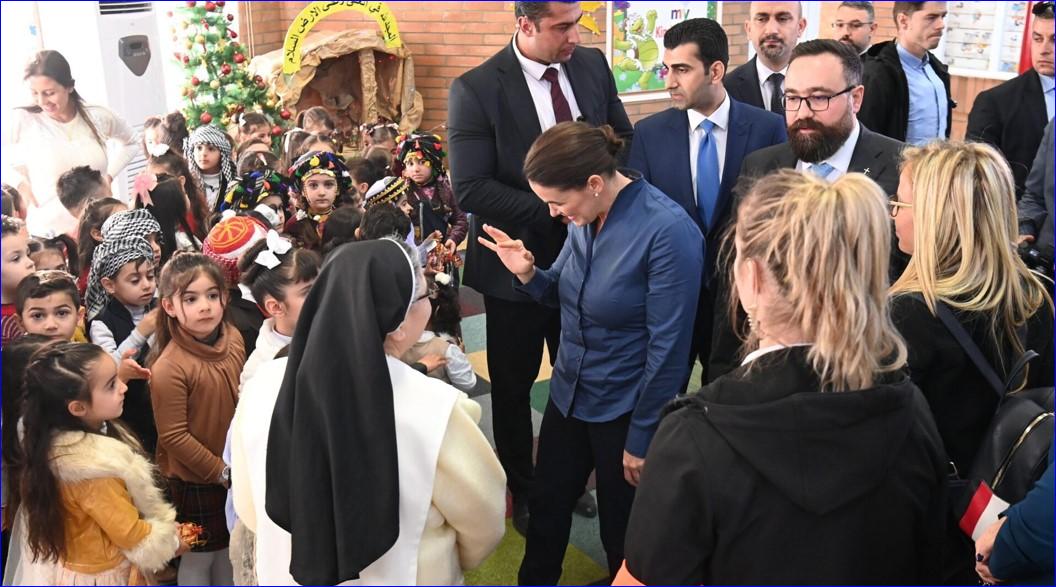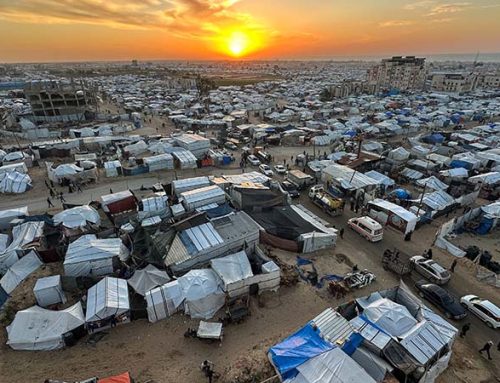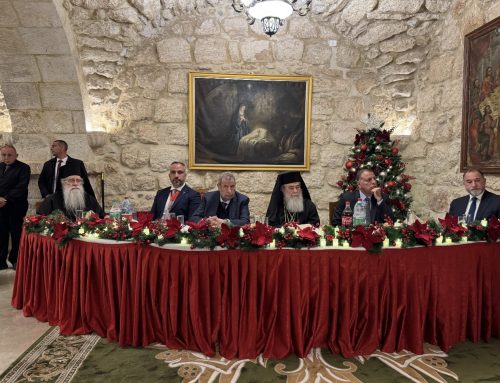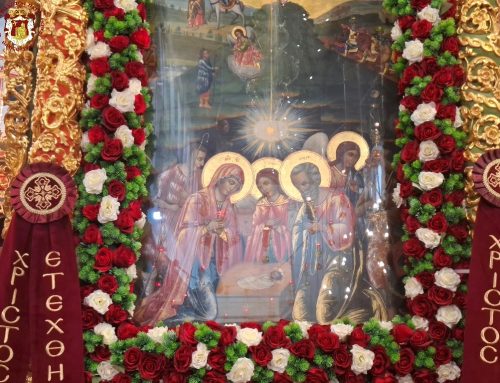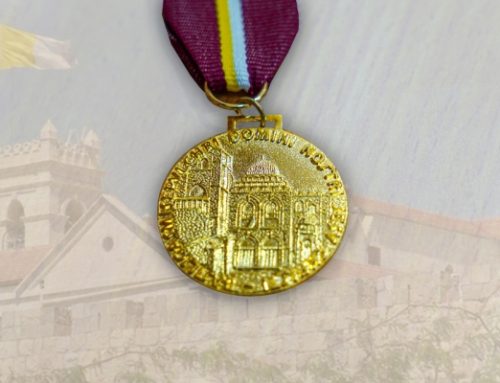For the past two years, Jeremy P. Barker has been on fieldwork in Iraq, working on a project a summary of which was published as a report titled ‘Engaging with Religious Inequality in Humanitarian Response: A Case Study from Iraq 2014–2019’. In the report, he explores how religious diversity dynamics shaped humanitarian assistance efforts in the context of large-scale displacement due to conflict in Iraq and what actions were taken to engage with religious inequalities through programmatic responses. In the discussion, Barker raised attention to the concerning results, which show that much of the huge amount of aid directed to the Iraqi minority communities disappears, and just a small amount of money is actually received by them.
After speaking with a country director for an international assistance programme, he discovered that cash assistance programmes take $50 for organisational overhead costs, international staff security, and logistics for every $100 donated. This means that only $50 will actually reach the communities; and an even larger proportion is subtracted in the case of donations of physical items due to additional costs.
Hungary Helps’ Direct Approach to Iraqi Christian Communities More Effective
Barker emphasised that by contrast, Hungary Helps’ direct approach to Iraqi Christian communities was more effective, visible, faster, and broader than the assistance provided by more well-known international NGOs. He highlighted that although the traditional aid world may criticise Hungary for its direct approach and partnerships with local Iraqi Christian churches, it proved effective in reaching communities and aiding in post-ISIS rebuilding efforts. To give an example, Barker praised the effectiveness of Hungary’s two-million-euro assistance to a town inhabited by a Christian community in the Nineveh Plain, which was destroyed by the Islamic State terrorist organisation in 2014 and could be rebuilt in 2018 with Hungary’s help. In recognition of the gesture, the town was renamed Tel Askouf, which means ‘Hungary’s daughter’. Barker pointed out that although Christians were forced out of Tel Askouf during the ISIS era, Hungary’s aid has resulted in the single highest rate of Christian return in the Nineveh Plain.
He also explained that Hungary assisted in more than just providing material needs such as shelters and economic aid: it also helped rebuild homes and renovate churches, which revived communal life for the Christian community.
Hungary’s assistance was also praised by activists like Juliana Taimoorazy, the founder and president of the Iraqi Christian Relief Council, who expressed her gratitude to Hungary in speeches and interviews. She said Hungary ‘responds to the suffering of Christians in the Middle East not with indifference, but with love and help’. Since 2019, Hungary has also assisted the settlement and return of Yazidi refugees in the Iraqi Sinjar region and the Dahuk Governorate through five reconstruction, rehabilitation, educational, and health projects within the framework of the Hungary Helps Programme.
Barker noted that some aid practitioners would argue that the US government can’t have this direct approach to Christian communities in need because the First Amendment prohibits state support of any particular religion. Because of that, they say it would violate the constitution if American government agencies partnered with religious entities in their aid programmes, despite clarifications by USAID and others that this is not an accurate application of the first amendment.
The Iraqi Christian Community Has Been Marginalised for Decades
In a previous episode of our podcast, Juliana Taimoorazy explained that the Assyrian Christian community had been marginalised for many decades. In 1914, under the Ottoman Empire, Assyrian Christians were persecuted and then expelled from southeast Turkey; as a result, they had to flee to Northern Iraq, where the newly formed Iraqi government also harassed them. Under the presidency of Saddam Hussein, Christians were only tolerated in the country if they didn’t speak about their ethnicity and professed to be Arabs. Those Assyrian Christians who bravely endorsed their ethnicity and language were subject to persecution. Ms Taimoorazy also reminded that this year marks the 20th anniversary of the US invasion of Iraq, which led to the destruction of the lives of one and a half million Assyrians, Chaldean and Syriac Christians. In 2014, ISIS took control of Mosul and quickly learned where Christians lived (it was usually their very neighbours who gave them up), and ISIS militants marked their homes with the Arabic letter ‘nun’ (ن), which stands for Nazarenes, as Christians follow Jesus of Nazareth. In larger cities like Qaraqosh, Christians who didn’t have time to escape were killed, women were raped, and believers were even crucified on their own doorsteps. After ISIS destroyed the infrastructure of Qaraqosh and other cities, they gave Christians three options: convert to Islam; pay a tribute, a jizya, to ISIS; or leave their town with nothing more than the clothes on their back, or else they would be killed.
Most Young Christians Don’t See a Future in Iraqi Kurdistan
The three largest communal groups in Iraq account for approximately 95 per cent of the population: Shia Arabs, Sunni Arabs and Kurds; in addition to these largest groups, there are many other religious, ethnic and linguistic groups, including Christians, Kakai, Shabak, Turkmen, Yazidis and others, such as the Bahai and Sabean-Mandaeans.
In his publication, Barker quoted Iraqi researcher Saad Salloum who wrote the following just before the ISIS period in 2013: ‘This rich cultural diversity (ethnic, religious, sectarian and linguistic) is threatened by emigration and assimilation into the majority culture. Minorities risk becoming helplessly crushed beneath a complicated legacy of demographic manipulation and being ultimately lost in the conflict between major forces competing for space, power and fortune. Some religious minorities are endangered and may soon be consigned to memory, especially since the challenges they face target not just their freedoms and rights but their very existence and sustainability in a land they have lived on for dozens of centuries and who have become so rooted in Iraq that no one can imagine an Iraq without them. This is not an imaginary perception or an abstract warning; rather, it is a fact.’
As mentioned in a previous Hungarian Conservative article, while 20–30 years ago, the number of Iraqi Christians was around three million, now, according to most sources, that has dropped to only around 250,000 and is declining rapidly, primarily due to emigration as a result of economic hardship and violence. However, even this number is likely an exaggeration, and it is closer to 164,000–125,000.
Regarding the future of Iraqi Christians, Professor Jeffrey Kaplan, a distinguished fellow at the Danube Institute, highlighted in the discussion that one of the most important findings of their fieldwork in Iraqi Kurdistan was the impact of emigration on the Christian community. He emphasised that almost all young people the research team talked to want to leave, not because of security issues, but for economic reasons and more broadly because they see no future for themselves and their families in the country.
Jeremy P. Barker stated that although many Christians and Yazidis sought refuge in safe havens controlled by the Kurdish Regional Government when Daesh attacked, and the Kurdish government gave a representation of eight different religious communities within the Ministry of Religious Affairs, the challenges faced by religious communities persist. He added that the fact that if one is not allied with one of the main political parties or families, one’s prospects are limited, led to the isolation of the Christian community.
Most Women Who Were Tortured By ISIS Still Haven’t Received Justice
As the Danube Institute’s researchers explained in a previous podcast episode, in which they shared the findings of their two-week fieldwork in Iraqi Kurdistan, women within the Christian and Yazidi communities were even more vulnerable during the ISIS period as they were often kidnapped, raped and sold as slaves. They noted that the main reason why perpetrators remain unpunished is that Christian families didn’t take revenge and talk publicly about the attacks, as most families didn’t want others to know how they had been dishonoured. According to their interviews, this is also why tracking how many Christian women were affected by the torture of ISIS is very difficult. In one of the interviews, where they were asked not to record the discussion but were allowed to take notes, a Christian woman shared how the shame of being raped determined her life. She explained that during the ISIS era, the community arranged somehow to get her and her family visas and flee from the country to the US; however, as the US authorities wanted the woman’s story to be shared publicly, the family chose to stay rather than have their shame publicly broadcast around the world.
When asked about the situation of Iraqi Christian and Yazidi women, Jeremy P. Barker explained that survivors of the ISIS period who were tortured haven’t received help or compensation partly because the governmental programmes which should give financial and other support are extremely underfunded.
He added that social pressure and policy changes would be crucial for achieving justice.
The Detrimental Effects of the Ban on the Conversion to Christianity
The Iraqi personal status law is one of the country’s most significant forms of discrimination against Christians. The law makes the entire family, including children, officially Muslim if one of the parents chooses to convert to Islam, which means if someone with a Muslim parent wants to convert to Christianity, they cannot change their religion from ‘Muslim’ to ‘Christian’ on their ID cards. Because of the severity of the ban by Islam on conversion to Christianity, the issue of proselytising has become one of controversy and debate among the Christian denominations in the country. According to the Danube Institute research team’s findings, while evangelical Christians, aware of the consequences, still choose to share the gospel publicly and accept Muslim converts, most historical denominations do not share the view of evangelicals, and for fear of being attacked and killed for it, they forbid conversion and only accept it in special cases.
Responding to the question about the issues regarding converts, Jeremy P. Barker highlighted that their concerns increase complexities around marriage, inheritance, ownership of property, and other practical matters. He added that 16 churches are formally recognised by the Ministry of Religious Affairs in Kurdistan, with a dozen evangelical and other Protestant churches lacking legal recognition. Barker emphasised that greater clarity of the registration of churches and rights of religious exercise would be to the benefit of addressing some of these underlying tensions between both Protestant, evangelical and historic Christian communities, as well as the broader Muslim denominations. To the claim that most converts to evangelical Christianity do so only to get a visa to a Western country, Barker answered that it is infrequent, and that he personally only met with converts who are genuine in their faith.
Is There a Hope for a Future for Iraqi Christians?
Whenever the Danube Institute’s research team asked Iraqi Christians whether there is hope for a future for them, the answer was always the same: ‘We’ll only have a future with God’s help and if the international community won’t forget about us and will help.’ Jeremy P. Barker highlighted the historical resilience of Christian communities facing persecution, which may be reason for optimism. He added that during his fieldwork in Iraq, he spoke with many Christians who invest in the community, have a vision for a thriving future and work to preserve their religion’s psychical heritage. In his view, there definitely is hope, but it requires a lot of work to secure a future in which in Iraq and Kurdistan there is space for all communities, including Christians.
Sáron Sugár is a research fellow at the Budapest-based think tank, the Danube Institute. She studied International Relations at Eötvös Loránd University. Her main research fields include events of the Middle East, especially the changes in the Israeli-Palestinian conflict, and the worldwide persecution of Christians.
By Sáron Sugár

